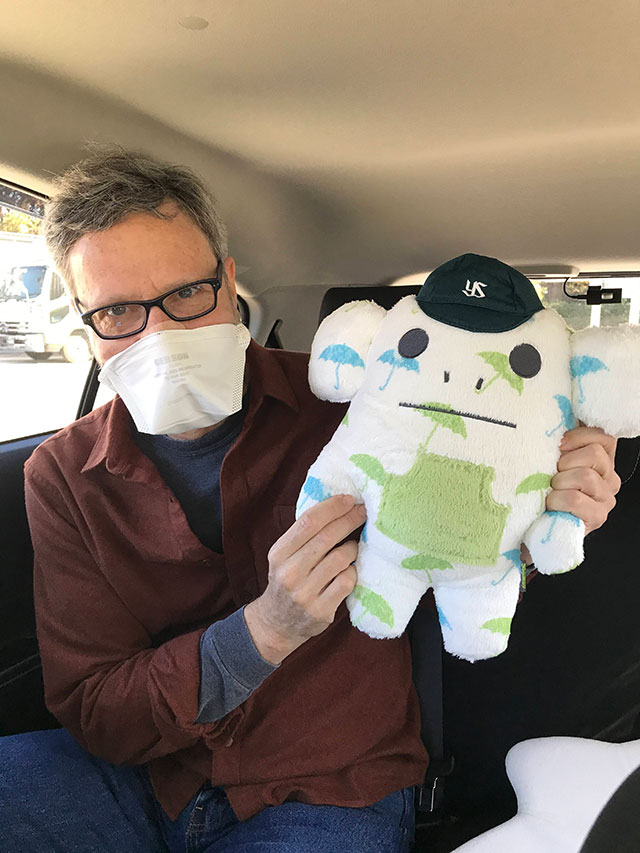
Goldstein eats one of three daily bentō meals in the quarantine hotel.
My Fulbright Story

Goldstein eats one of three daily bentō meals in the quarantine hotel.

Dr. David Goldstein—a Teaching Professor at University of Washington, Bothell, USA—specializes in American history and culture, focusing on minorities living in the states.
It was Dr. Goldstein’s innate curiosity that led him into academia. Brought up in a typical white neighborhood, it was only when he reached college that he realized the variety of stories different people had. Thus, a quest to broaden his understanding of the lives around him had begun. “The more you learn, the more you realize how much you don't know. That's what led me to Fulbright, to learn more about things that I knew almost nothing about,” he recounts.
As a Fulbright scholar, Dr. Goldstein had the opportunity to teach and interact with undergraduate and graduate students in three Japanese universities, imparting them with an understanding of the American way of life, and imbibing aspects of the Japanese way of life.
Dr. Goldstein’s fascination with Japan began 10 years ago, when he was invited to teach and conduct workshops about implementing active learning methodologies in classrooms, at a university in Tokyo. “I fell in love with the country instantly,” he says. Although he was vaguely aware of Fulbright’s scholarly exchange programs, it would not have been possible for him to pursue these when his children were young. “Now that they are grown and off on their own, it has given me the freedom to travel more,” Dr. Goldstein remarks.
With timing and finances both aligning, he decided to apply for the program. His visit to Japan under the aegis of the Fulbright Lecturing Program was his ninth visit to the country, but the longest one. “Living there was a whole new experience,” Dr. Goldstein reminisces. He delivered lectures on the theme “Teaching ‘America’: Race, ethnicity, and immigration through literature and film” in the University of Tokyo, Aoyama Gakuin University, and Kanda University of International Studies.
Dr. Goldstein fondly recalls his students, applauding their multilingual skills and interest in active classroom discussions. “In some cases, they knew more about American history than some of my students in the US,” he says. “They got me to think about aspects of American culture that I hadn't considered before,” the professor tells us.
Apart from enriching his academic pursuits, the 11-month long Fulbright Program also provided Dr. Goldstein the opportunity to explore Japan with his wife. “It was glorious being there in fall, winter, and spring and that made it very pleasant to travel all around in the country,” he says.
Dr. Goldstein returned to the USA in August 2022 with what he calls a “lifetime affinity for Japan”. Not only has he imbibed Japanese cultural traits into his lifestyle—like making it mandatory for guests to take off their shoes when visiting his apartment—but he has also been re-thinking his academic endeavors since his return. “I'm sure I'll be teaching more Japanese American literature than I had previously,” he says.
Dr. Goldstein emphasizes the importance of mindfulness and flexibility for any scholars considering applying for the Fulbright Program. “Everything that you imagine is going to fall short of reality. There will be things that are much better than you expected and some things that are much harder than you had expected. So be ready to roll with it,” he says.